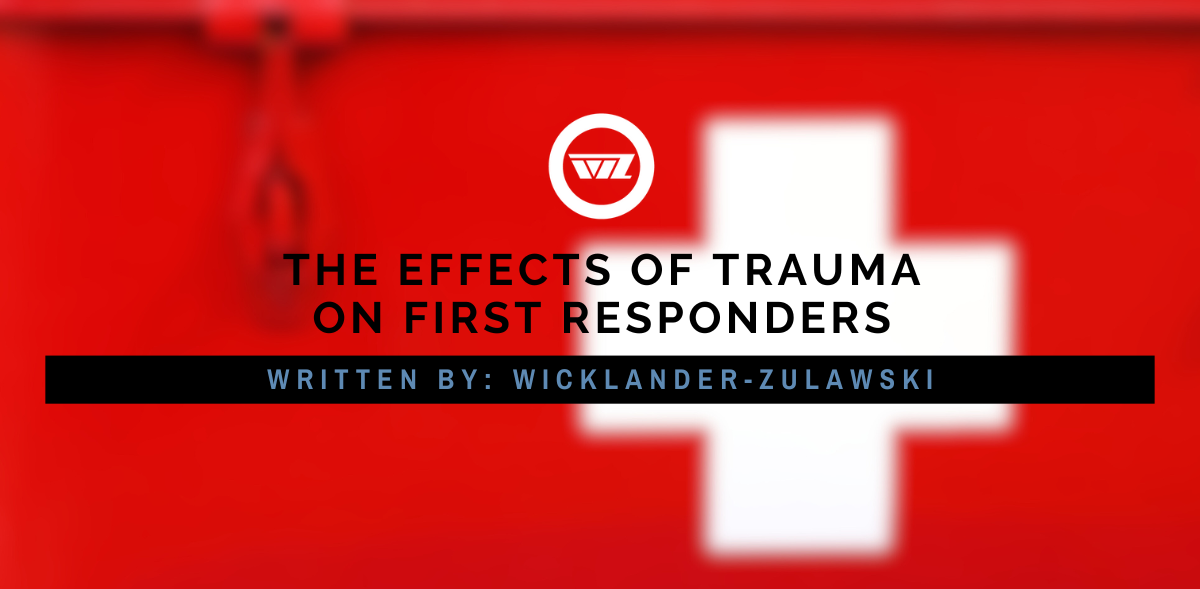Investigators often carry heavy caseloads and have minimal time to conduct extensive interviews. Pressures to complete their assignments come from a variety of directions including supervisors, the media, the public and often the victim or their family. Internal pressures, often a desire to be successful, may also be a factor. Due to a combination of these external and internal forces, investigators are often heard saying they do not have time to develop rapport with the subject of an interview. This may be the very reason they are unsuccessful in some of their interviews, as they do not take the requisite time to develop rapport and understanding of their subject. The same investigators may also ask too many closed questions with a focus on obtaining singular information and, as a result, valuable information is lost.
The ability to develop rapport is often directly correlated with an interviewer’s attitude or bias during the conversation. This can be most difficult when interviewing a subject who has committed heinous crimes. Even if an interviewer’s time is limited, at a minimum, an understanding and respectful attitude should be conveyed.
When conducting investigative interviews, some investigators just appear to be going through the motions. There is minimal attempt to develop any rapport with the subject or understand the reasons for their actions. To someone listening to the exchange, the interviewer’s tone of voice may suggest they don’t like or respect the person being interviewed. The interviewer may also ask too many closed-ended questions, revealing much about what is known and the target of the investigation, potentially contaminating any subsequent admission. Asking closed questions also conveys that the interviewer is not interested in the complete version of events, but rather has a sole focus. Another common mistake is if an open ended question is asked, the interviewer interrupts and talks over the subject’s response. The person conducting the interview does not completely listen to the subject’s response and may miss a lot of potentially valuable information that should have been examined more closely. The interviewer’s probing skills are deficient. Often seen from impatient investigators is repetitive, direct accusations and speaking over the subject’s denials. The person interviewed becomes agitated when not allowed into the conversation, and active listening decreases. The interviewer appears to be rushed and not involved in the conversation. In these instances, there is no connection is made between the interviewer and the subject of the interview. As a result, the person interviewed shuts down and has no inclination to supply any information regarding the investigation. In some cases, depending upon the length and nature of the interview, this may lead to misinformation or a false confession.
It seems intuitive that many criminal investigations rise or fall on the abilities of the person chosen to conduct the interview. It doesn’t matter if the person interviewed may be a victim, witness, or suspect. Some investigators seem to have an innate ability to connect with almost anyone. They appear to enjoy talking with people from all walks of life. These professionals are sometimes referred to as “People Persons”. These same investigators have probing skills that increase, rather than reduce, a subject’s desire to give truthful information. The participants are truly carrying on a conversation with one another. The investigator’s development of rapport is not just a box to check off as he or she progresses through the interview. Rapport is developed and carefully maintained throughout the interview. Sometimes benefits are seen, even after the interview is completed. People possessing information regarding criminal activity have been known to contact specific investigators because of a feeling of trust previously developed during professional interviews. Some of these connections form actual friendships that extend throughout an investigator’s entire career.
Often, the ability to develop rapport comes naturally to professional interviewers. It is hard to fake sincerity. Insincerity can be detected quickly by even the most naïve victim, witness, or suspect. If an interviewer is perceived as insincere, information will be withheld. Some interviewer’s often overlook their own tone of voice. Professional interviewers are aware that insincerity can be quickly detected by the interviewer’s tone. Professional interviewers closely monitor their voice patterns, preventing the leakage of any negative feelings about the subject of their interview. They are aware that people will not divulge information to someone they do not feel respected by.
In general, people do not pay attention to their voice patterns and tone. If a person listens carefully, words can convey different meanings (“How was your day? Fine!”) During on-going relationships, tone of voice is often ignored, leading to unhealthy unions. As a result, many marital bonds dissolve, leading to divorce. In many cases the divorced partner has no idea that there were any problems in the marriage. He or she has been ignoring a change in their partner’s tone of voice for many years. During those years prior to the dissolution of the marriage even their own tone of voice may have conveyed disrespect and contempt towards their spouse. The same example may be applied to an investigative interview. Biases and contempt may be revealed through tone of voice, leading to an unsuccessful interview.
Prior to beginning an interview, successful interviewers take the requisite time to consider what it would be like to be in the subject’s position. What would motivate a person to commit the act under investigation? What are the subject’s true motivations for the event? What are the subject’s fears that must be understood prior to gaining an admission? These fears may include going to jail, loss of employment, paying restitution, public or private embarrassment, physical violence in retaliation for the event, or a combination of all of the above. Unless the interviewer understands, acknowledges, and overcomes these fears the chance of obtaining an admission or gaining truthful information are greatly diminished. Understanding an individual’s concerns may also create a feeling of empathy for the subject interviewed, further developing a relationship, fostering rapport and trust.
In many cases, professional investigators allow the subject of the interview to vent their frustrations without interruption. In this case, issues may be addressed immediately and properly, resulting in the subject of the interviewer viewing the interviewer more favorably. An example of this may be articulated if the subject of the interview has had an unfavorable contact with law enforcement in the past. This lingering issue may prevent the subject from being candid in the current setting. By allowing the person to express their emotions and listening to the subject’s concerns, without interrupting, allows the investigator to demonstrate that they care about the subject’s interests. Throughout this experience, it is important for the investigator to remain nonjudgmental.
The professional does not let their biases or ego get in the way of success. They focus on the ultimate goal of the interview; to gather truthful information. We may not be able to eliminate all of our biases, but our conscious awareness of these feelings may lead us to a more objective perspective when evaluating information received during the interview.
When the professional investigator asks an open-ended question, they do not interrupt the interviewee’s response with an additional question. The subject is allowed to complete their response fully. The investigator does not rush, rather illustrates that they are willing to remain involved in the conversation as long as necessary.
In some cases, the subject of an interview may have guilty knowledge they do not want to reveal. Prior to the interview, these persons have decided how much information they will reveal and what they are going to withhold. These persons are prepared to make denials to direct accusations and in turn, are grateful to respond to closed questions. Normally, closed questions ask for a specific piece of information which does not need any elaboration. The question is asked and a deceptive response may be given.
On the other hand, open-ended questions throw the deceptive person off balance. The deceptive individual is prepared to answer a direct question with a denial. An open-ended question requires a more complete response. More pressure is placed upon the individual if the interviewer gives the subject the boundaries of the question, then asks for a very detailed response. “John, please tell me, in as much detail as possible, everything you did on Friday, beginning when you woke and ending when you went to bed that evening.” A question of this type places the onus on the deceptive person to give you the needed information. Even if the deceptive individual gives a more complete response, but leaving out the incriminating segments, a time line may reveal points of omission that should be explored further. Open-ended questions often reveal valuable information that the investigator had not considered. Open-ended questions create dialogue in which the subject often reveals information regarding their knowledge in which they intended to withhold. At times, even information the subject feels is benign, can lead to the successful conclusion of an investigation. This is a dilemma for the person who believed they could outsmart the interviewer by appearing to cooperate. They must decide if they are going to give vague, non-descript information ultimately appearing deceptive or create fabrication allowing the investigator to either corroborate or disprove. Either way, investigative information regarding the subject’s cooperation will be revealed to the investigator.
After an open-ended question is asked, the investigator must allow the subject to respond completely. A truthful person may pause after giving a brief summary to collect his or her thoughts, in order to add additional information. A deceptive person may pause, waiting to see if the investigator will accept the answer given. Silence is uncomfortable for both the interviewer and the person interviewed. The interviewer should wait a reasonable amount of time prior to interjecting. The truthful person will appreciate the additional time to collect his or her thoughts. Often times, the silence will be unbearable for the deceptive person who will fill that silence with additional irrelevant information. In either case, it is to the interviewer’s best interest to pause before asking another question.
It is understood that many investigators have increasingly heavy caseloads and limited time to conduct extensive interviews. Many of the points mentioned earlier may suggest the interviewer needs to take more time prior to an interview, or even during the conversation with the subject. Understanding that investing time properly into the investigation and subsequent interviews may actually result in more time for the investigator. The ability to close out the case sooner, eliminate innocent subjects and minimize multiple interviews of the same subject may all be a direct result of a thorough investigation and strategic planning of the interview. Considering the subject’s fears and possible motivations for their actions while showing respect and understanding for the individual will also contribute to higher resolution of cases. Respect for the subject’s opinion is easily conveyed by asking many open-ended questions, actively listening to their response, and probing, in a non-confrontational manner, any areas of concern.
Thomas F. McGreal is a Certified Forensic Interviewer employed by Wicklander-Zulawski & Associates. He was previously employed by the Cook County State’s Attorney’s Office as an investigator in the Post Conviction / Conviction Integrity Unit. Thomas F. McGreal was also employed by the Chicago Police Department, assigned to the Detective Division.





